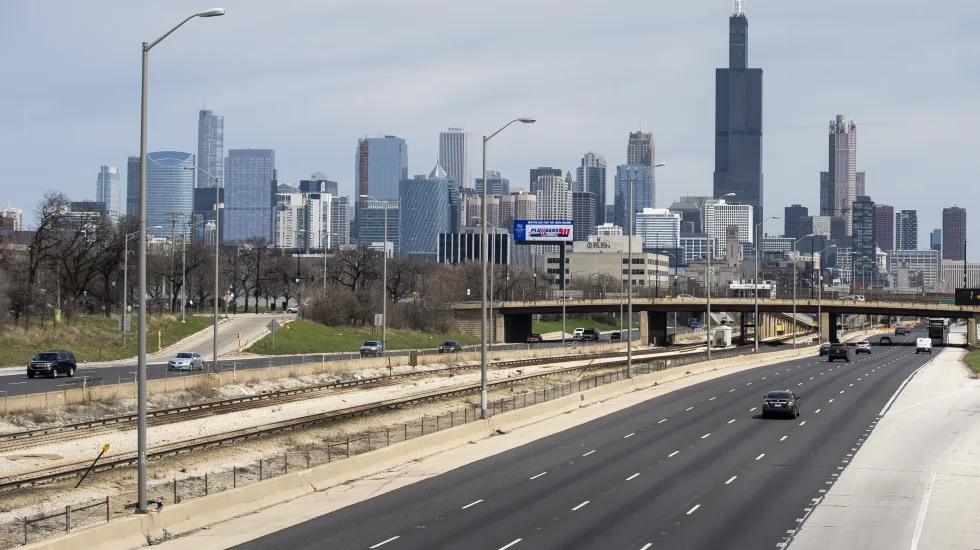
Top mayoral aides got a new tool to reclaim some abandoned and distressed properties concentrated in communities of color, under an ordinance advanced Tuesday amid renewed concern about aldermanic prerogative.
The City Council’s Committee on Housing and Real Estate voted to empower Planning and Development Commissioner Maurice Cox and Housing Commissioner Marisa Novara to reach “land banking agreements” with the Cook County Land Bank Authority.
The two commissioners or their successors would specifically be authorized purchase delinquent or forfeited property taxes from Cook County to assemble property for development. They also would be authorized to pay or reimburse the land bank for “acquisition-related costs, holding and maintenance costs and land banking fees.”
Maggie Cassidy, program director for the planning department, said abandoned and distressed Chicago properties are “concentrated in communities of color” for obvious reasons.
“This is a pernicious legacy of segregation, residential redlining and the 2008 foreclosure crisis,” Cassidy told committee members.
The land banking ordinance “would open new avenues to address this entrenched problem and return property to productive use,” she said.
Established in 2013, the Cook County Land Bank was created to “disrupt the vicious cycle of tax-delinquent properties failing to find buyers and falling into greater disrepair,” Cassidy said.
“Working together, the city and county can more effectively return property to productive use than either entity working alone,” she said.
“The land bank will hold and manage property for the city until a suitable end use can be found. For instance, the issuance of a joint [request for proposals] that would bundle city and county property together or some other qualified end use.”
Although the ordinance “offers certainty and clarity” to the city, county and potential development partners, Cassidy stressed that any acquisition or disposal of property by the city still would require council approval — even though the two commissioners would be authorized to enter no-cash bids at the bi-annual scavenger sales.
Those assurance was not enough to satisfy some committee members. Nor were two other 11th-hour guarantees: requiring twice-a-year reports to the Housing Committee on all land banking agreements, and establishing a three-year deadline to do something productive on each piece of property acquired.
Ald. Ray Lopez (15th) demanded to know what happens if the plan for a vacant or tax-delinquent property conflicts with the local alderperson’s vision.
“I want to make sure that there are mechanisms in place to ensure that — not just this alderman, but any one of my colleagues that has issues with what’s going on — isn’t bulldozed over,” he said.
Lopez has worked with the Chicago Police Department and the Department of Buildings to do something about problem or tax-delinquent properties “only to have the land bank and other groups swoop in at the last minute and knock out years of work,” he said.
“They want to preserve buildings, but then have become horrible owners of properties in my ward,” Lopez added.
“It wasn’t until our briefing that I actually saw my first properties owed by the Cook County Land Bank sign. And if I showed you pictures of what those properties look like, they’re absolutely disgusting.”
Eleanor Gorski, executive director of the Cook County Land Bank, agreed to send each alderperson ”a list of land bank lots” in their wards, and offered to work closely with them.
A longtime city planner who served as first deputy and acting commissioner of Planning and Development, Gorski told Lopez, “I agree with you, alderman. There’s no use for us signing agreements if the community and the alderman have an issue with it.”
Budget Committee Chair Pat Dowell encouraged Gorski to provide the local alderperson with real-time information not only on large projects, but also on what Dowell called “smaller one-offs” that involve just one or two lots.
“We may have more information about the [buyer]. It could be a purchaser, for example, from outside of the state who, we know, might have property within our wards, [and] who aren’t maintaining them well. Or someone that we know is a flipper and seeks to just purchase property and not do anything with it, then six months down the road, sell it for a higher price, which contributes to gentrification,” Dowell said.







